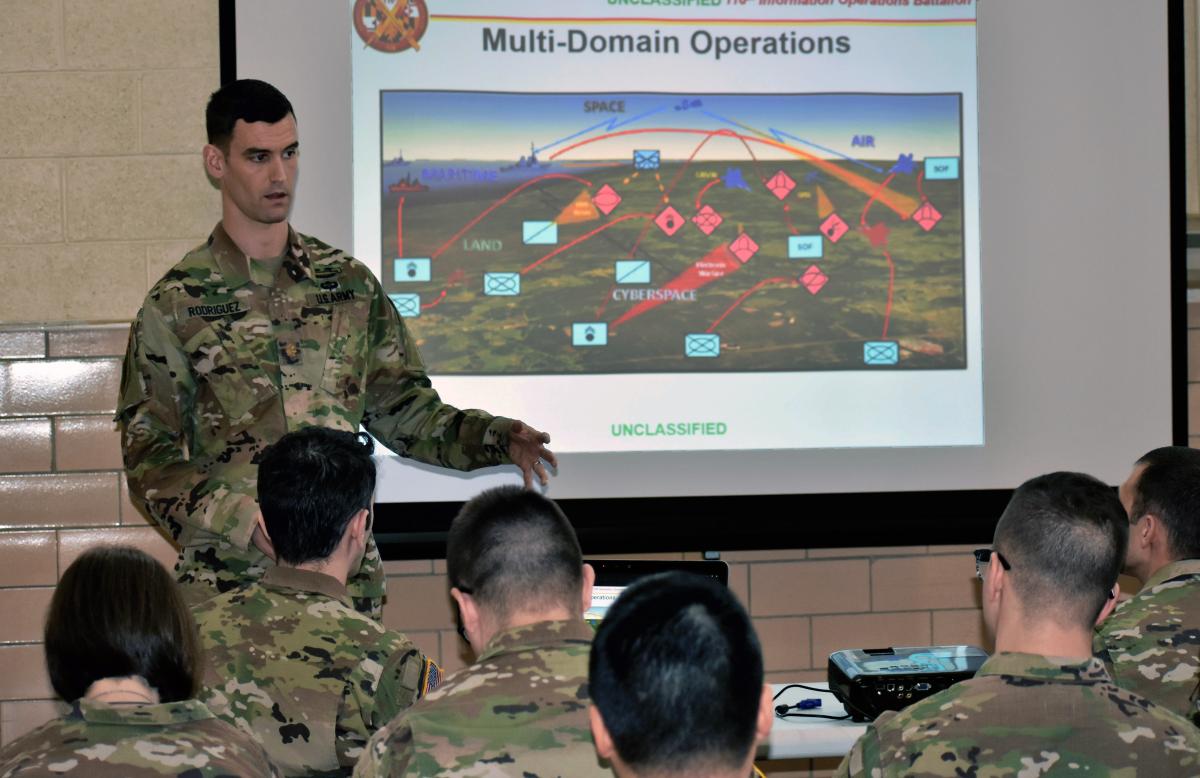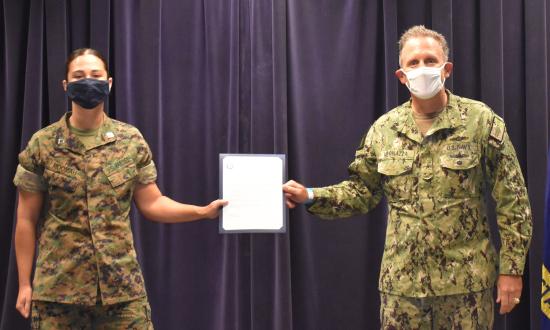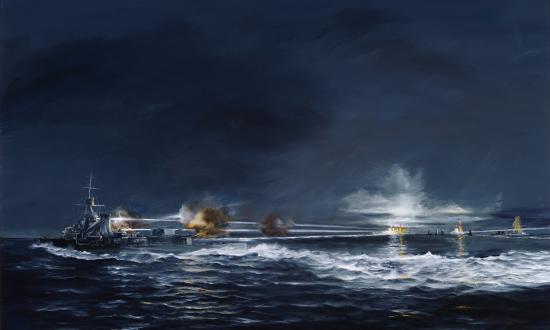The U.S. Army information operations (IO) community faces an identity crisis. Army IO officers, known by their career field designation of Functional Area 30 (FA30), are the “staff focal point for IO,” and perform a vital function to synchronize, coordinate, and integrate information effects into unit operations. However, the FA30 community lacks a coherent group identity in part because of a widespread misunderstanding of IO stemming from years of constantly changing doctrine, terminology, and theories of execution. As a result, the Army lacks a shared institutional understanding of both IO and the purpose of FA30s. The degree to which the FA30 community can overcome this identity crisis will determine how well the Army can recruit, train, retain, and employ its IO professionals to meet the current and future challenges of information warfare.
The importance of Social Identity
Social identity is directly tied to an organization’s cohesion and effectiveness. Social identity theorists widely concur that a strong group identity can improve cooperation, levels of effort and engagement, group decision-making, morale and motivation, information sharing, coordination, and the performance of tasks. Simply put, members of an organization are more likely to perform their duties effectively and enthusiastically when they identify with their organization. Furthermore, social identity theorists Blake Ashforth and Fred Mael point out that a clearly defined, widely understood organizational purpose is crucial to building group identity and team effectiveness. Indeed, by cultivating a shared purpose among members, an organization builds both internal and external influence. Ashforth and Mael explain that a group with a “positive and distinctive organizational identity attracts the recognition, support, and loyalty” of its members as well as external outgroup members. Undoubtedly, an organization with a well-established identity and purpose is more effective and better positioned to influence than an organization that lacks these attributes.
Social Identity and Army Information Operations
The Army FA30 community, however, lacks a strong, salient group identity, which hinders its effectiveness. The fundamental issue is that the purpose of IO itself is ill-defined. Far from creating a shared understanding, IO terminology and definitions are vague and confusing. Joint doctrine describes IO as “the integrated employment, during military operations, of information-related capabilities in concert with other lines of operation to influence, disrupt, corrupt, or usurp the decision-making of adversaries and potential adversaries while protecting our own.” The Army uses this definition, but expands the scope of IO to include “all activity employed to affect the information environment and contribute to operations in and through the information environment.” In other words, Army IO essentially covers any activity that exists within, transits, or exploits the information environment. While FA30s enjoy wide latitude to operate as they see fit under this definition, it makes it challenging for FA30s to explain their purpose clearly and concisely to leaders and subordinates alike. When staff officers cannot plainly convey their purpose and function, they are often marginalized or ignored within the organization—a systemic issue for the FA30 community.
In addition, Army IO terminology is perpetually changing. The Army has struggled for decades to define IO, experimenting with concepts such as command control communication countermeasures (C3CM) and command and control warfare (C2W) before finally designating the function as information operations in 1996. Since then, the Army briefly replaced IO with inform and influence activities (IIA) in the late 2010s before transitioning back to information operations in the latest edition of FM 3-13. Today, the terms information dominance and information warfare have informally entered the lexicon while the Joint Force appears ready to adopt the term operations in the information environment (OIE) as part of the multidomain operations concept. With yet another potential name change on the horizon, it is only a matter of time before the term IO itself becomes outdated. Since major terminology and definition changes often take years to become ingrained, these constant revisions have transformed IO into a confusing, amorphous concept to much of the Army.
Establishing a strong, salient group identity is of utmost importance to the FA30s, who function as coordinators and integrators of information-related capabilities (IRCs). IRCs (and the people behind them) create information effects, such as psychological operations (PsyOp), cyberspace operations, and electronic warfare. Doctrine designates FA30s as the staff focal point to integrate IRCs, but the information officers have neither the authority nor the mandate to direct the actions of IRCs on the battlefield. Thus, FA30s must rely on influence and relationships to synchronize effects within the information environment in support of the commander’s objectives. To do so, FA30s must have a strong, reputable, and consistent group identity to foster trust with IRCs. However, widespread misunderstanding about IO and the purpose of FA30s means that this trust does not always exist between FA30s and battlefield IRC executors.
An additional problem for developing group identity and esprit de corps derives from information officers’ status as a functional area. A functional area is “a grouping of officers by technical specialty or skills other than an arm, Service, or branch that usually requires unique education, training, and experience.” An Army functional area lacks the insignia, colors, and other uniquely identifying symbols traditionally associated with branches. Therefore, the Army FA30 community has little to no heraldry with which to outwardly distinguish itself and build an identity. Furthermore, there is no requirement to have served in an IRC career field to apply for a transfer into the IO functional area. Some training, education, or academic background in an information-related vocation or field of study is preferred, but not required. As a result, the IO profession consists of an expansive and diverse set of backgrounds from nearly every basic branch in the Army, but very few FA30s have prior hands-on experience with IRCs before becoming information officers. This only exacerbates credibility issues when FA30s attempt to coordinate IRCs and further strains trust.
Clearly, the lack of identity negatively impacts FA30s’ professional cohesion. Many FA30s are marginalized, ignored, underutilized, or incorrectly employed. There is no doubt that this identity crisis also negatively impacts the Army’s ability to recruit and retain IO professionals. It is never easy to recruit and retain individuals in a profession that struggles to define itself.
Recommendations
One crucial component of a solution is the standardization of Joint IO definitions, terminology, focus, and scope across the entire Department of Defense (DoD). The Army’s struggles are potential symptoms of a larger issue, in that each armed service has a unique interpretation and operates along disparate lines of effort with regards to IO. For example, in the Navy, the nearest occupational equivalent to the Army FA30 position is the cryptologic warfare officer, whose IO paradigm focuses on technological application of cyberspace operations and electronic warfare. In contrast, the Army and Marine Corps include these as capabilities of IO but tend to place more emphasis on human influence and cognitive decision-making, because they operate primarily on land in direct contact with human enemy, neutral, and friendly forces. The Air Force adopts a holistic approach to IO and recently created the Air Force Special Code (AFSC) 14F to designate information operations as an official occupational specialty. (It had previously been considered an additional duty in most cases.) Clearly, IO professionals across the armed services do not necessarily operate in concert with each other by design, leading to potential functional gaps in DoD’s approach to information warfare.
The Joint Concept for Operations in the Information Environment (JCOIE) is an important step toward standardizing joint IO and building cooperative efforts among service branch IO professionals. The JCOIE emphasizes information as a critical component of multidomain operations in current and future warfare. Even more important, it calls for a greater shared understanding of IO within the Joint Force, including “a common lexicon, standardization of processes, and establishment of relationships that reduce or eliminate barriers to the integration of physical power and informational power.” As each service continues to refine its IO structure, the JCOIE provides an opportunity for collaboration and cooperation. The institutional standardization of IO across the DoD would help each service build a cohesive organizational identity within its community of IO professionals, as well as help create an overall Joint IO community that is currently non-existent.
For its part, the Army should consider elevating the FA30 profession to the status of a branch and reevaluating the selection and education process. The establishment of an IO branch would symbolically raise the importance of the Army IO profession to a level commensurate with the expanded role of information warfare in multidomain operations. It also would enhance the organizational identity of the profession by creating the organizational symbolism and insignia common to Army occupational branches.
The Air Force’s recent efforts regarding the formation of a formal IO career field provide a useful case study for the Army. Since creating the 14F AFSC in 2016, the Air Force has subsequently created an IO technical training school to train and educate IO professionals, which opened in 2019. The Air Force IO career field has standardized training and education and sustains “institutional knowledge and practice of IO tactics, techniques, and procedures.” While it is perhaps too early to assess the long-term success of the 14F AFSC, the Army should be watching closely.
Further, the U.S. Army also should consider adopting a career progression model in which former IRCs transition into the IO branch later in their careers. The logistics officer model is often cited as an example of how the career progression of a hypothetical IO branch could look. In 2006, the Army approved the creation of a Logistics Branch and the Logistics Officer Corps. Previously, Army logistics professionals served their entire careers in one of the three specialized logistics branches of quartermaster, ordnance, and transportation, and no position existed to ensure the overall synchronization of logistics operations. Since 2006, however, Army officers now serve in one of these three functional branches early in their careers before transitioning to the Logistics branch once they attain the rank of captain (O-3) and complete the necessary professional military education (PME) requirements. The Army adopted this model after identifying the need for logisticians “capable of planning, integrating, and executing sustainment operations” holistically, while still obtaining the requisite specialized experience earlier in their careers. The similar challenges within its IO profession suggest logistics could be a roadmap.
An IO plan adapted from the logistics branch model would see officers transition to the IO branch at a midway point in their careers, after serving in an information-related occupational specialty, such as PsyOp or cyberspace operations. Under this model, IO Officers would gain the experience and credibility of having served as an IRC specialist before becoming an IO generalist. For whichever information-related branches are selected to participate, this model could create personnel and manpower issues that would need to be resolved. Each branch would need to adapt its own officer career progression system to become the force provider for an IO branch while still maintaining its own mid-to-senior-level positions. In some cases, those branches could even worry about losing their own established organizational identity. Above all, this course of action admittedly creates new challenges and requires thoughtful consideration of all second and third-order effects to have a realistic chance of implementation.
IO Keeps Growing
Without a doubt, Army FA30s perform an essential role in information warfare, and the importance of these positions will only increase as the information environment becomes more central in current and future warfare. The Army will continue to need staff experts focused on the holistic integration of all information-related effects, and FA30s will fill that role regardless of whatever form the position takes. By standardizing Joint Force and Army IO doctrine and terminology, as well as investigating the possibility of creating an IO branch, the Army can help build the identity and capability of its IO community, thus empowering them to wage information warfare in future conflicts.






